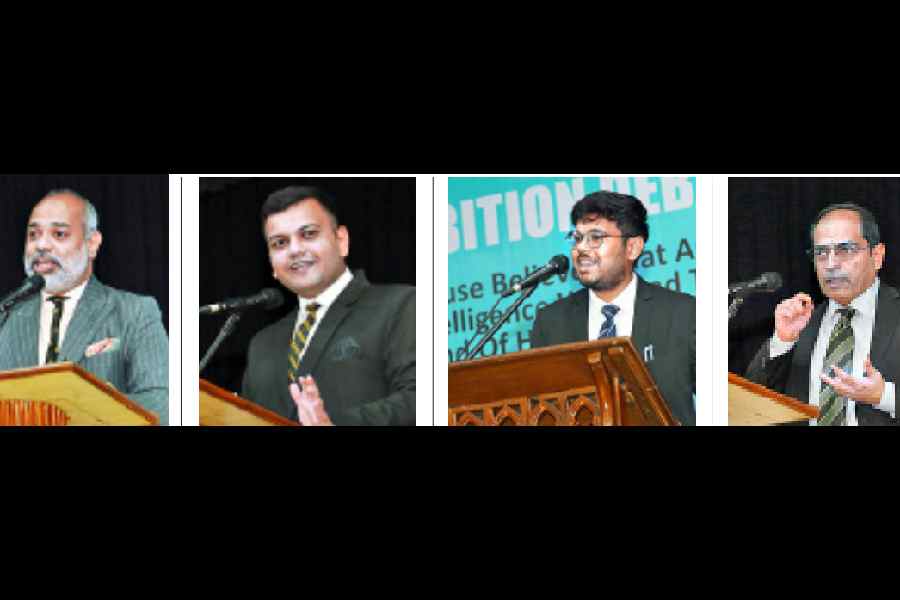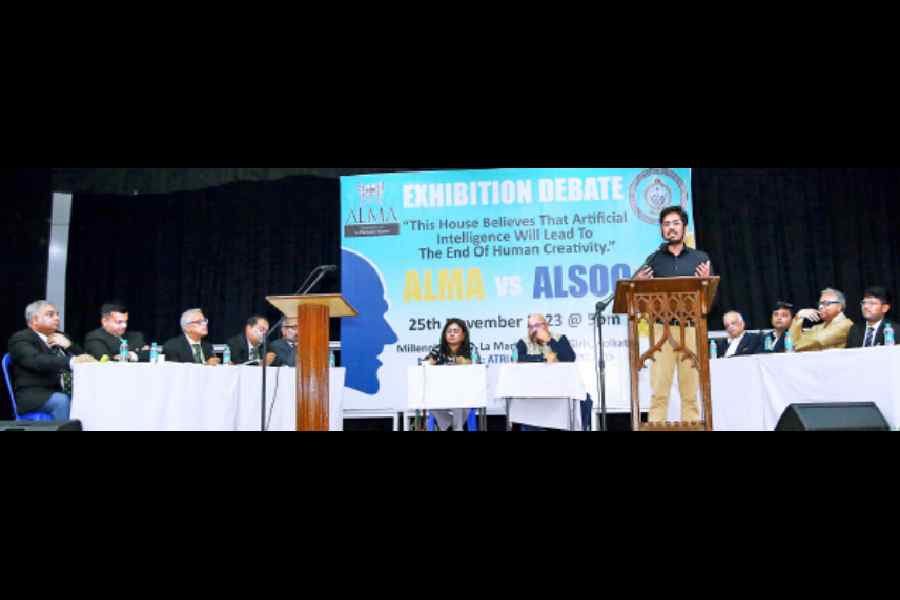Members of the Association of La Martiniere Alumni (ALMA) and Alumnorum Societas or St. Xavier’s School Old Boys’ Association (ALSOC) hosted their annual event, the second ALMA-ALSOC Debate 2023, in association with The Telegraph, at La Martiniere for Girls’ Millennium Hall on November 25. Taking into consideration the latest advancement in technology that is sparking conversations everywhere — artificial intelligence — the panel of speakers debated on the topic, ‘This house believes that artificial intelligence will lead to the end of human creativity’. Moderated by IAS Atri Bhattacharya, the insightful argument saw both sides place their opinions in two rounds. Five speakers on each side represented the two alumni associations. While ALMA chose to speak for the motion, ALSOC opposed it. Glimpses:

Art curator and lecturer Anirudh Chari from ALMA said: “AI is making humans lazy. It gives you an easy way out. The way it stands now, AI is also capable of emotions. Of course, handwritten letters are more worthy than an email put together by an AI. It is prompts that are leading to the end of human creativity. It is prompting you to think in a certain way. It will stop you in thinking for yourself. Intelligence and creativity are two entirely different concepts.”
Social worker Hamed Aziz Safwi, representing ALMA, highlighted passive consumerism as an end to human creativity in his argument. “The foundational principles of creativity are emotions. It is the experiences that one goes through. AI by its very nature has been defined or designed to be something which is more efficient than human beings. As we become passive consumers, this passive consumerism is something that is going to limit experiences,” argued Hamed.
Lawyer Joyjeev Medhi from ALSOC pointed out the technical aspects of constructive AI. “Human beings have this innate ability to emote, to have experiences, which no AI can replicate. How does AI stand today? What is artificial intelligence? It’s nothing but recognising patterns in large data sets. When YouTube recommends another video to you, that is analysing your fast data on reviews. Hence it analyses large data sets and predicts what you should watch next. That is the pattern recognition which AI does. Human creativity is not fixed in data sets. Certain things like beliefs and experiences lend human creativity a much more advantage,” said Joyjeev.
Management professional Gautam Malik from ALMA elaborated upon Artificial General Intelligence. He said: “Artificial General intelligence can intellectually do everything that the human being is capable of doing and can even surpass it… AI can create. There is something called the butterfly effect. A butterfly flapping its wings in the Amazon basin. Now three years later there is a hurricane in China. Scientifically, it has been proven that if the butterfly had not flapped its wings at a particular time, that hurricane would not have occurred. Simply put, it means that small initial changes can lead to dramatic end results and that is what we are focusing on in AI. Humans will gradually become passive consumers and not active creators.”
